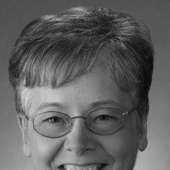- January is 'Kansas Radon Action' month (1/15/13)
- Advice on making your New Year's resolutions stick (12/26/12)
- Tips for a safe and healthy holiday season (12/4/12)
- Prepare now to enjoy the holiday season (11/13/12)
- Food safety tips make fall picnics, tailgates winners (10/2/12)
- Make a grab-and-go box to prepare for disasters (9/11/12)
- Family time around the dinner table is important (8/21/12)
Opinion
Area residents take steps to improve health, wellness
Tuesday, March 17, 2009
The 2009 Walk Kansas community fitness challenge began last week with 51 teams participating. More than 300 individuals in our community are taking important steps to improving their health and well-being by becoming more physically active and improving their diets by eating more fruits and vegetables. More than an eight-week program, the goal of Walk Kansas is that people will be motivated to make some life-long healthy lifestyle changes.
Just a few weeks ago an important report came out from the American Institute for Cancer Research (AICR). It affirmed the importance of what the Walk Kansas participants are doing. You may have heard or read about the report as it was carried by most of the major news networks.
The report was the result of a five-year process by a panel of the world's leading scientists and representatives from the United Nations and other international organizations. The panel looked at all of the latest research worldwide on ways to prevent cancer.
Some of the important findings are:
45% of colon cancer cases and 38% of breast cancer cases in the U.S. can be prevented by making changes in our diet, physical activity and weight control.
Overall, a third of the most common cancers can be prevented.
Eight general recommendations were identified, along with special recommendations for breastfeeding mothers and cancer survivors. Following are highlights of some of those recommendations. The remainder will be covered in next week's column.
* Body fatness. Be as lean as possible within the normal range of body weight. Normal range is measured by body mass index (BMI) based on height and weight. A BMI table can be found at http://www.nhlbi.nih.gov/guidelines/obesity/bmi_tbl.pdf.
Avoid weight gain and increases in waist circumference throughout adulthood.
2. Physical activity. Be physically active as part of everyday life. Get moderate physical active, equivalent to brisk walking, for at least 30 minutes every day. As fitness improves, aim for 60 minutes or more of moderate, or for 30 minutes or more of vigorous, physical activity every day. Limit sedentary habits such as watching television.
Most populations, and people living in industrialized and urban settings, have habitual levels of activity below levels to which humans are adapted.
* Foods and drinks that promote weight gain. Limit consumption of energy-dense foods. Avoid sugary drinks. Energy-dense foods are those that provide many calories for the weight of the food. Processed foods, which often contain larger amounts of fat or sugar, tend to be more energy-dense than fresh foods. Sugary drinks provide calories but do not satisfy feelings of hunger, resulting in overeating and thus weight gain.
* Plant foods. Eat mostly foods of plant origin. Eat at least five portions/servings, or 14 ounces, of a variety of non-starchy vegetables and of fruits every day. Eat relatively unprocessed grains and legumes with every meal. Limit refined starchy foods. Most plant foods are high in fiber, high in nutrients, and low in calories.
President Obama, in a joint session of Congress in February, said that "Preventive care ... is one of the best ways to keep our people healthy and our costs under control." With spring just around the corner, it's a good time to start taking some of those preventive steps to improve health and wellness.
For more information about the above AICR report go to www.aicr.org. If you'd like to keep track of the progress of Walk Kansas participants, weekly updates can be found at www.walkkansas.org.
Editor's Note: Ann Ludlum is a K-State Research and Extension family and consumer sciences and 4-H extension agent assigned to Bourbon County. She may be reached at (620) 223-3720 or aludlum@ksu.edu.

